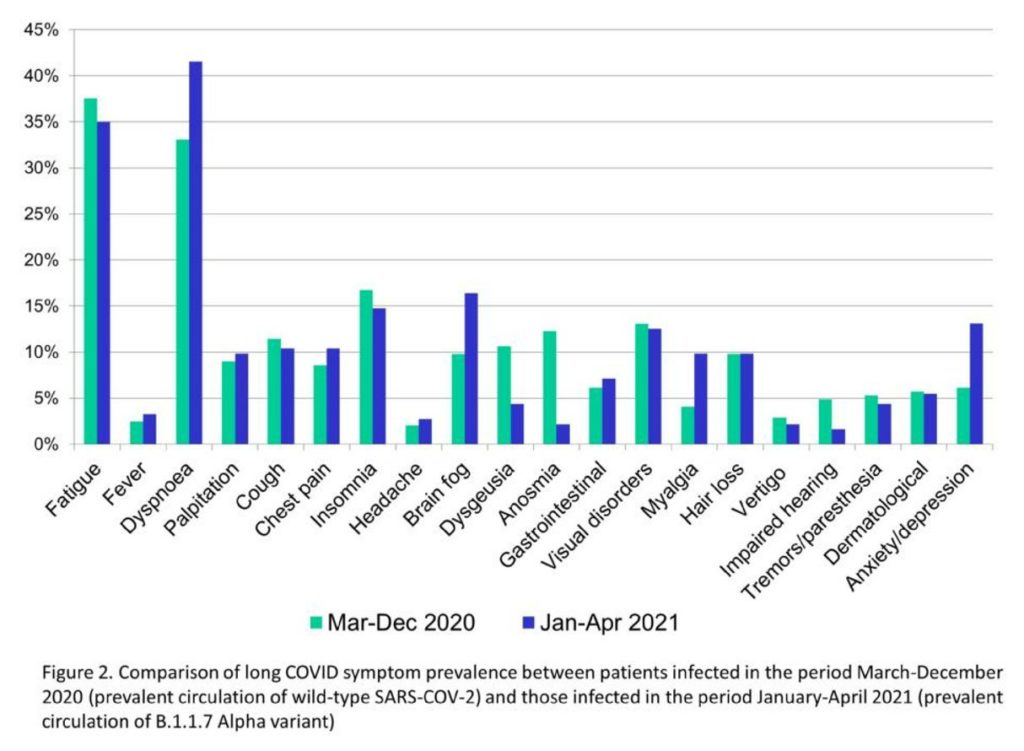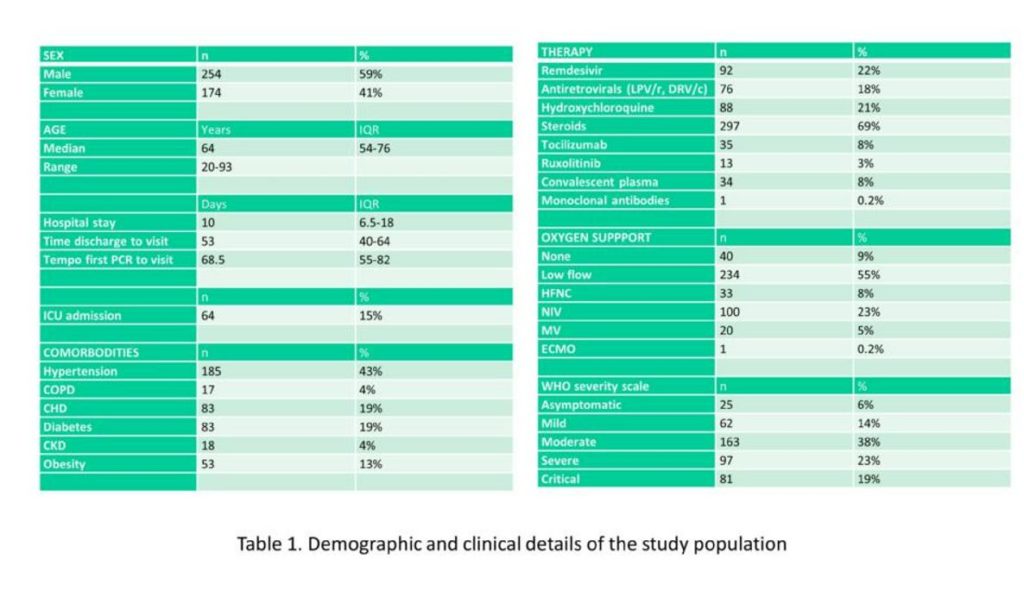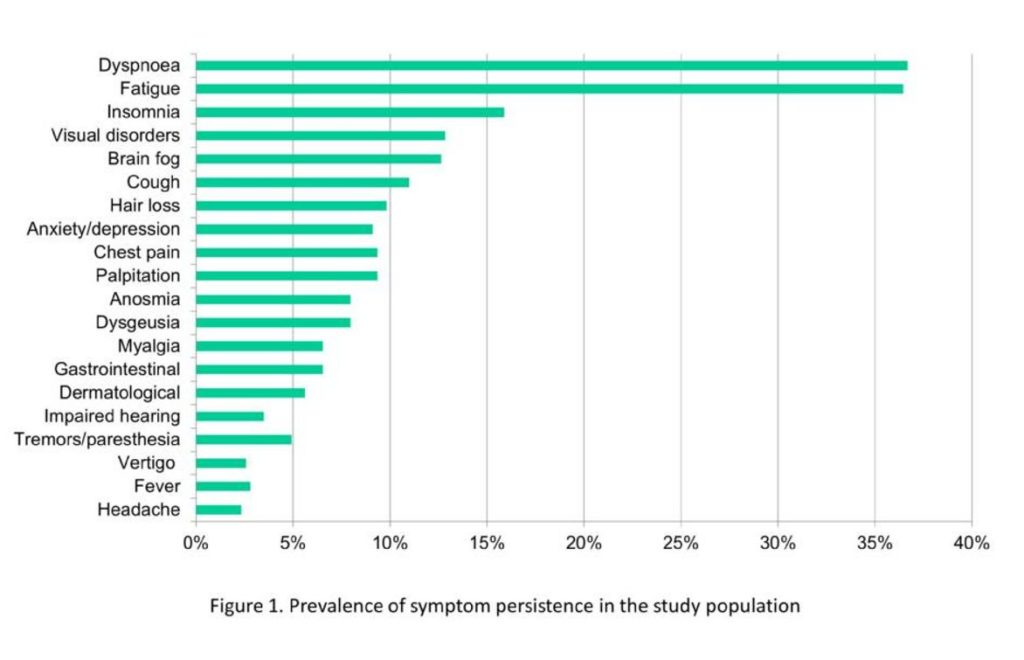Three out of four people had at least one long COVID-19 symptom for weeks after they were released from the hospital, according to new research. Breathing problems (37%) and fatigue (36%) were the most common.
According to Italian research of long-COVID patients, individuals infected with the Alpha variant of SARS-CoV-2 had different neurological and emotional symptoms than those infected with the original strain of SARS-CoV-2.
New research that will be shown at this year’s ECCMID conference in Lisbon, Portugal (23-26 April), indicates that the symptoms of long COVID could be different in people who have different strains of the virus. Dr. Michele Spinicci and colleagues from the University of Florence and Careggi University Hospital in Italy conducted the research.
According to estimates, more than half of SARS-CoV-2 survivors develop post-acute sequelae of COVID-19 (PASC), often known as ‘long COVID.’ Anyone can be affected by the disorder, including the young and old, those who are generally healthy, and those who have underlying conditions. It has been observed in patients who have been hospitalized with COVID-19 as well as those who have only moderate symptoms. Despite a growing corpus of research, extended COVID is still poorly understood.
In this study, researchers did a retrospective observational study of 428 patients—254 (59%) men and 174 (41%) women—treated at the Careggi University Hospital’s post-COVID outpatient service between June 2020 and June 2021, when the original form of SARS-CoV-2 and the Alpha variant were circulating in the population.
The patients had been hospitalised with COVID-19 and discharged 4-12 weeks before attending a clinical visit at the outpatient service and completing a questionnaire on persistent symptoms (an average [median] of 53 days after hospital discharge).
In addition, data on medical history, microbiological and clinical COVID-19 course, and patient demographics were obtained from electronic medical records.
At least three-quarters 325/428 (76%) of patients reported at least one persistent symptom. The most common reported symptoms were shortness of breath (157/428; 37%) and chronic fatigue (156/428; 36%) followed by sleep problems (68/428; 16%), visual problems (55/428; 13%), and brain fog (54/428; 13%).

Analyses suggest that people with more severe forms, who required immunosuppressant drugs such as tocilizumab, were six times as likely to report long COVID symptoms, while those who received high flow oxygen support were 40% more likely to experience ongoing problems.
Women were almost twice as likely to report symptoms of long COVID compared with men. However, patients with type 2 diabetes seemed to have a lower risk of developing long COVID symptoms. The authors say that further studies are needed to better understand this unexpected finding.
Researchers performed a more detailed evaluation comparing the symptoms reported by patients infected between March and December 2020 (when the original SARS-COV-2 was dominant) with those reported by patients infected between January and April 2021 (when Alpha was the dominant variant) and discovered a substantial change in the pattern of neurological and cognitive/emotional problems.

They found that when the Alpha variant was the dominant strain, the prevalence of myalgia (muscle aches and pain), insomnia, brain fog and anxiety/depression significantly increased, while anosmia (loss of smell), dysgeusia (difficulty in swallowing), ad impaired hearing were less common.

“Many of the symptoms reported in this study have been measured, but this is the first time they have been linked to different COVID-19 variants,” adds Dr. Spinicci.
Source / Image credit: European Congress of Clinical Microbiology & Infectious Diseases
You were reading: 3 in 4 hospitalized patients report long COVID – symptoms varied by variant
